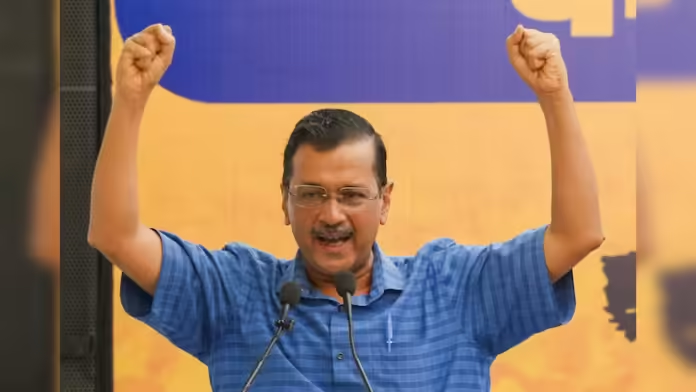In a surprising development that has sent ripples through Delhi’s political landscape, Arvind Kejriwal, the Chief Minister of Delhi, is set to resign from his position. The resignation is expected to take place today, with Kejriwal scheduled to meet the Lieutenant Governor at 4:30 pm. This move marks a significant shift in Delhi’s political arena and has sparked widespread speculation about the future leadership of the Aam Aadmi Party (AAP) and the city itself.
Kejriwal’s anticipated resignation follows a series of political maneuvers and discussions that have been unfolding over the past few weeks. The announcement of his resignation comes amid growing curiosity and conjecture about who will take over the reins of the Delhi government. As Delhi’s Chief Minister for several terms, Kejriwal has played a pivotal role in shaping the city’s policies and governance, and his departure will undoubtedly leave a considerable impact on the local political scene.
The AAP, which has been at the center of Delhi’s political discourse, is preparing to make a significant announcement regarding Kejriwal’s successor. The party has planned to reveal the name of the new Chief Minister today, following Kejriwal’s resignation. This decision is poised to determine the future direction of Delhi’s governance and will likely be closely scrutinized by both political analysts and the public.
Kejriwal’s tenure as Delhi’s Chief Minister has been marked by a series of transformative policies and initiatives. His leadership has been instrumental in implementing various reforms in education, healthcare, and public infrastructure. Under his administration, Delhi witnessed improvements in several key areas, including the expansion of educational facilities, the enhancement of healthcare services, and the development of public transport systems.
However, the political climate has been increasingly dynamic, with shifts in party alliances and political strategies shaping the current scenario. Kejriwal’s decision to step down comes at a time when Delhi faces numerous challenges, including issues related to governance, public services, and political stability. The new leadership will need to address these challenges effectively to ensure the continued progress and development of the city.
As the AAP prepares to announce its new Chief Minister, speculation about potential candidates has been rife. Several prominent figures within the party have been mentioned as possible successors, each bringing their own strengths and experiences to the table. The selection of the new Chief Minister will play a crucial role in determining the future direction of Delhi’s policies and governance.
The resignation of Arvind Kejriwal also raises questions about the impact on the broader political landscape of Delhi. His departure could lead to shifts in party dynamics and influence the strategies of other political parties in the region. Additionally, the new Chief Minister will need to navigate the complexities of Delhi’s political environment, balancing the expectations of various stakeholders while addressing the needs of the city’s residents.
In the lead-up to the announcement, there has been a heightened sense of anticipation among Delhi’s residents and political observers. The choice of the new Chief Minister will be closely watched, as it will signal the future trajectory of Delhi’s governance and the direction of the AAP’s policies. The party’s ability to manage this transition smoothly will be critical in maintaining stability and ensuring that the city’s development continues unabated.
As the clock ticks towards the scheduled meeting with the Lieutenant Governor, the political landscape of Delhi remains in flux. The resignation of Arvind Kejriwal marks the end of an era in Delhi’s governance and sets the stage for a new chapter in the city’s political journey. The announcement of his successor will provide clarity on the future leadership of Delhi and shape the path forward for the AAP and the city as a whole.


